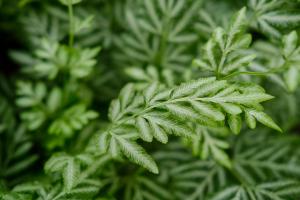Can I Use Swimming Pool Water to Water Plants?
If you have a swimming pool at home, you may wonder if you can use the pool water to water your plants. After all, swimming pool water is treated with chemicals to keep it clean and safe for swimmers. Is it safe to use this water on plants? Let's find out.
The Risks of Using Pool Water on Plants
The primary concern with using swimming pool water to water plants is the high levels of chlorine and other chemicals. Chlorine, in particular, is known to be harmful to plants and can cause damage to their cells. Other chemicals such as algaecides, pH balancers, and clarifiers can also be harmful to plants if used in high concentrations.
In addition, pool water may contain other contaminants such as sweat, urine, and sunscreen, which can have a negative impact on your plants. These contaminants can affect the soil's pH level, making it harder for plants to absorb nutrients and water.
When Can Pool Water Be Used for Plants?
Despite the risks, it is possible to use swimming pool water to water plants under certain conditions. The first rule is to never use pool water that has just been treated with chemicals. Instead, wait at least 24 hours after adding chemicals before using the water on plants. This will allow enough time for the chemicals to dissipate.
You should also aim to use the pool water on non-edible plants rather than those you plan to consume. This is because edible plants may absorb the chemicals from the water, which can be harmful to your health if consumed.
In addition, if you have a saltwater pool or use alternative methods of pool sanitation such as ionizers or ozone generators, you may be able to use the pool water on plants more safely. These methods tend to use fewer chemicals than traditional chlorine-based systems, which can reduce the risks to your plants.
How to Safely Use Pool Water on Plants
If you decide to use swimming pool water on your plants, there are a few steps you should take to keep them safe. The first step is to dilute the pool water with fresh, clean water. Aim for a ratio of 1:5, meaning one part pool water to five parts fresh water.
You should also avoid using pool water on plants that are already stressed or damaged. Using chlorine-laden water on plants that are already struggling can make their situation worse, and they may not recover.
Finally, be sure to test the pH level of the soil before and after using the pool water. If the pH level is too high, it can be difficult for your plants to absorb nutrients, and they may suffer. If this is the case, you can add some organic matter such as compost to the soil, which can help to balance the pH level.
Conclusion
Using swimming pool water to water plants can be done, but it is not ideal, and there are many risks involved. If you must use pool water on plants, follow the guidelines listed above to minimize the risks and keep your plants healthy.

 how many times do yo...
how many times do yo... how many planted tre...
how many planted tre... how many pine trees ...
how many pine trees ... how many pecan trees...
how many pecan trees... how many plants comp...
how many plants comp... how many plants can ...
how many plants can ... how many plants and ...
how many plants and ... how many pepper plan...
how many pepper plan...
































